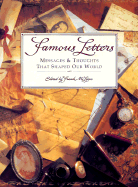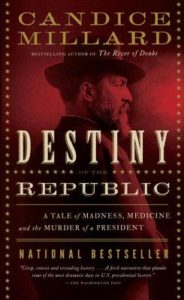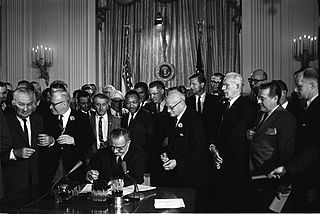Volumes have been published about the lives of U.S. Presidents. Abraham Lincoln’s life alone has inspired more than 15,000 titles. In fact, Ford’s Theatre Center for Education and Leadership once displayed a three-story tower made from 6,800 books written about Lincoln.
But, when I think about past presidents, my thoughts quickly shift from books about them, to letters written to and from them―letters that provided insight for much of what we know about those leaders―and how letters have become a relic.
Not that long ago, letters were important to our communication with one another. More than simply relaying information about happenstance or events, letters served as props for our perspective. They helped writers share, and also sort out, their personal thoughts and feelings.
Through Lincoln’s letters we feel his internal angst about the Civil War as well as the evolution of his resolve to support emancipation. Could it be that actual act of writing served as a catalyst that helped shape his values and convictions?
I often wonder how future historians, say in 75 or 100 years, will mine sources rich enough for them to write about the true character of those long deceased? Perhaps, there will be enough capacity to reconstruct even the most personal cyberspace communications (or they’ll gain access to all those N.S.A. recordings). But if communications guru, Marshall McLuhan, was right, and if the medium really is the message, what messages are we losing?
“Famous Letters: Messages & Thoughts That Shaped Our World,” edited by Frank McLynn, is a beautifully illustrated photo-essay, coffee-table treasure for those interested in the historical significance of letters. 
This work presents a context for 50 letters divided into four sections: Encounters and Discoveries; Self-Portraits and Justifications; Policy and Challenges; and Love, Death and Friendship. While it only contains a few notable exchanges with U.S. Presidents (Albert Einstein’s letter to Franklin D. Roosevelt supporting research for creating an atomic bomb; George Washington renouncing Colonel Lewis Nicola’s suggestion that Washington should be king of the 13 colonies; and Abraham Lincoln’s comforting words to Mrs. Lydia Bixby on the loss of her sons), there are many other notable missives. One of my personal favorites is a courageous letter from Captain Robert Falcon Scott to his friend, J. M. Barrie, who was godfather to his son and best known as the author of “Peter Pan.” During his doomed 1912 Antarctic expedition, Scott wrote Barrie entrusting him to watch over his wife and son and stated, “We are showing that Englishmen can still die with bold spirit, fighting it out to the end. It will be known that we have accomplished our object in reaching the Pole….”
 But turning back to U.S. Presidents, despite an average public school history education, my knowledge about President James A. Garfield was sadly limited to the fact that he was assassinated early in his presidency. I am embarrassed to admit that fact, but I suspect that I am not alone. Then I read “Destiny of the Republic: A Tale of Madness, Medicine and the Murder of a President” by Candice Millard. One of the wonders of a well-researched and well-written biography is how much it can make us appreciate and care about people that we knew so little about.
But turning back to U.S. Presidents, despite an average public school history education, my knowledge about President James A. Garfield was sadly limited to the fact that he was assassinated early in his presidency. I am embarrassed to admit that fact, but I suspect that I am not alone. Then I read “Destiny of the Republic: A Tale of Madness, Medicine and the Murder of a President” by Candice Millard. One of the wonders of a well-researched and well-written biography is how much it can make us appreciate and care about people that we knew so little about.
Being POTUS is pretty much a thankless job―one in which at least half of the people disapprove of your performance at any given time. While some candidates may be motivated by the noble ambition of a calling to serve, it is impossible to ignore the motivations of quest for power and ego. That Garfield did not choose― did not even want― to run for President, and that he was nominated over his objections, made the story of his too-short presidency even more poignant.
When I finished the book, I was sad. Here was a president who was seemingly void of self-promotional, bombastic claims…a true servant leader and one that the fractured nation needed to help guide it through the post-Civil War strife toward reconciliation.
As the book’s subtitle implies, it is far more complex than any simple recitation of facts about Garfield’s life and untimely death. Inventor Alexander Graham Bell’s exhaustive efforts to save Garfield’s life through his creative genius were a surprise in the story. Yet, the most heart-wrenching fact, made utterly clear in the book, is that while the assassin’s bullet was the beginning-of-the-end for Garfield, it was the hubris of his own physician (ironically named Dr. Bliss) that finished it. Poor Garfield endured physical torment under the “care” of Bliss while the doctor’s ego silenced those who might have actually helped save the President.
Along with President’s Day, February is also Black History Month, and that combination reminds me of another of my favorite presidential biographies, Robert Caro’s, “Master of the Senate.” This year is the 50th anniversary of landmark legislation, the Civil Rights Act of 1964, that President Lyndon B. Johnson signed into law. The political groundwork, however, started much earlier in his career.
The memory of Johnson’s presidency is intertwined with the escalation of the unpopular Vietnam War, but “Master of the Senate,” the third volume in the biographical trilogy, “The Years of Lyndon Johnson,” highlights Johnson’s legacy as the architect, political mastermind and the power behind the anti-discrimination Civil Rights Act.

For those who lived through that time, and for those who did not, the book portrays the terrible truth of what it was like for African Americans to live in the segregated South. Hailing from the Texas countryside, Johnson had seen that ugly reality up close.
The size of this tome (over 1,000 print pages) may be daunting, but, it is worth reading―every word―to better understand the enigma of Johnson’s character, the era, the history of the Senate, and the behind-the-scenes political machinations. In the front of the book, there is a quote from Johnson, “I do understand power, whatever else may be said about me. I know where to look for it, and how to use it.” The book’s rich detail imparts how true that was. Johnson may have been the master of the senate, but in this case, Caro is a master of the biography.